PhD scientist and infectious disease expert
Biomedical Scientist
Two movies influenced Jessica's decision to pursue an advanced degree and career in science, Outbreak and Medicine Man, encompassing several of her professional passions: infectious and exotic viral diseases, epidemiology, basic science, field work, and zoonotic diseases. No surprise, after completing a post-baccalaureate fellowship researching avian influenza after college, Jessica received her PhD in Cell and Molecular Biology, with a concentration in Microbiology, Virology, and Parasitology, from the University of Pennsylvania. Her thesis work focused on the immunopathogenesis of HIV and SIV infections in humans and monkeys. Following her PhD, Jessica used her expertise as a non-human primate immunopathogenesis expert to study and develop models of severe malaria in rhesus macaques in a postdoctoral research fellowship at the US National Institutes of Health.
Lifetime science lover
Science, especially biological science, has always been a part of Jessica's life. Her father, a forester and natural resources conservationist, exposed her to the beauty and wonder of the outdoors as a little girl. He also bought Jessica her first chemistry set and helped her try to generate electricity from the energy of her hamster running on its wheel for a science fair.
In college she fell in love with and decided to major in biology, taking a range of classes, including graduate courses, from microbiology and cell biology to animal behavior and neurobiology at Duke University. The research bug also infected her at this time - she worked as a research assistant in neurobiology labs throughout college. Also interested early in international science work and health, Jessica spent the summer after she graduated working at the Institute Laue Langevin (famous for their particle accelerator) in Grenoble, France, on a research fellowship.
Stereotype breaker
Jessica strives to challenge the culturally predominant stereotype of scientists being poor communicators and socially awkward, with few interests outside of science. She insists on presenting a more diverse profile of scientists, including by openly and enthusiastically sharing through social media who she is and her passions (female, mixed-ethnicity, fashion-loving, socially conscious, music and dance lover, etc). In doing so, she hopes to change public perception of what a scientist is and can be, especially for young girls interested in science. Jessica believes that changing the public perception of scientists can lead to a more diverse scientific workforce, in demographics and skill-sets, and also facilitate greater public awareness of scientific issues important to society.
In recognition of her professional achievements and outreach, Jessica was named as an IF/THEN Ambassador in 2019, serving as a high-profile Women in STEM role model for girls. A life-sized stature of her is part of #IfThenSheCan–The Exhibit, the largest collection of statues of women ever assembled together. Jessica’s personal story is featured in the 3M-produced docuseries "Not the Science Type," which premiered during the 2021 Tribeca Film Festival and was part of a sanctioned event at the 2022 Sundance Film Festival.
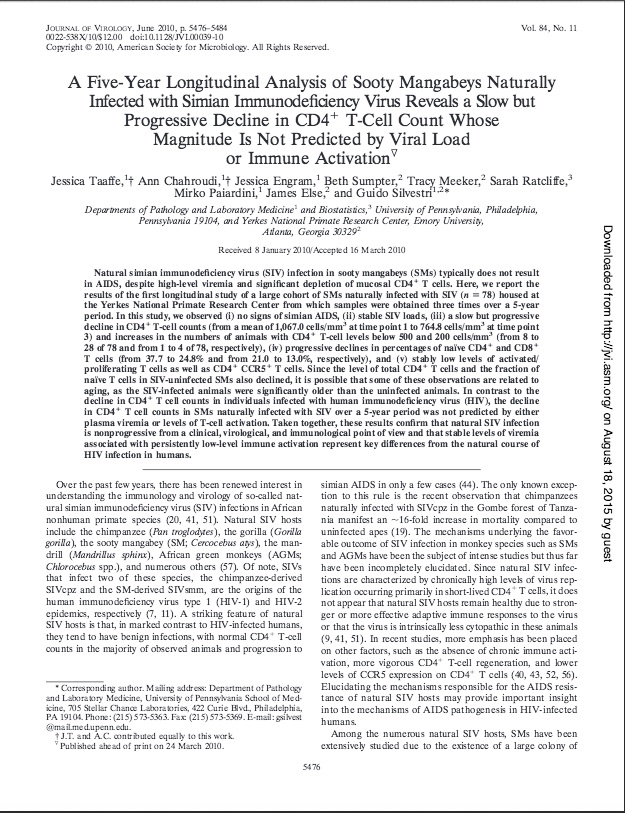
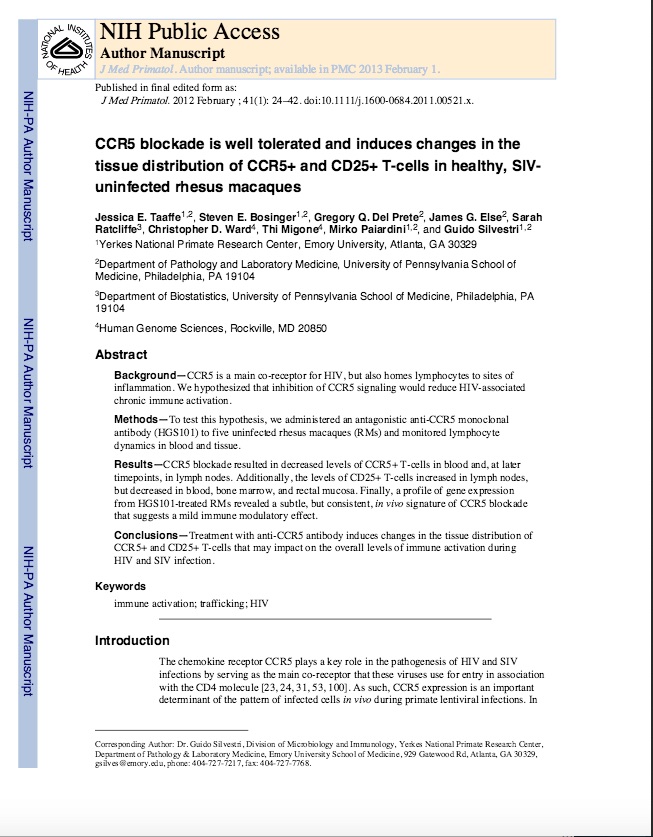
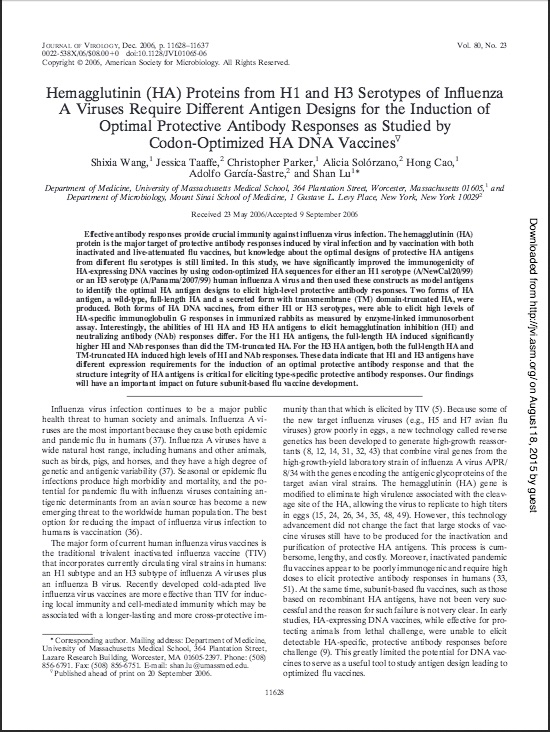
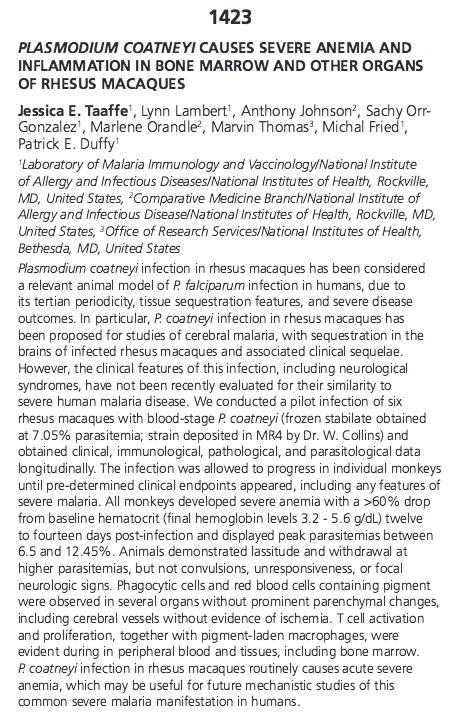
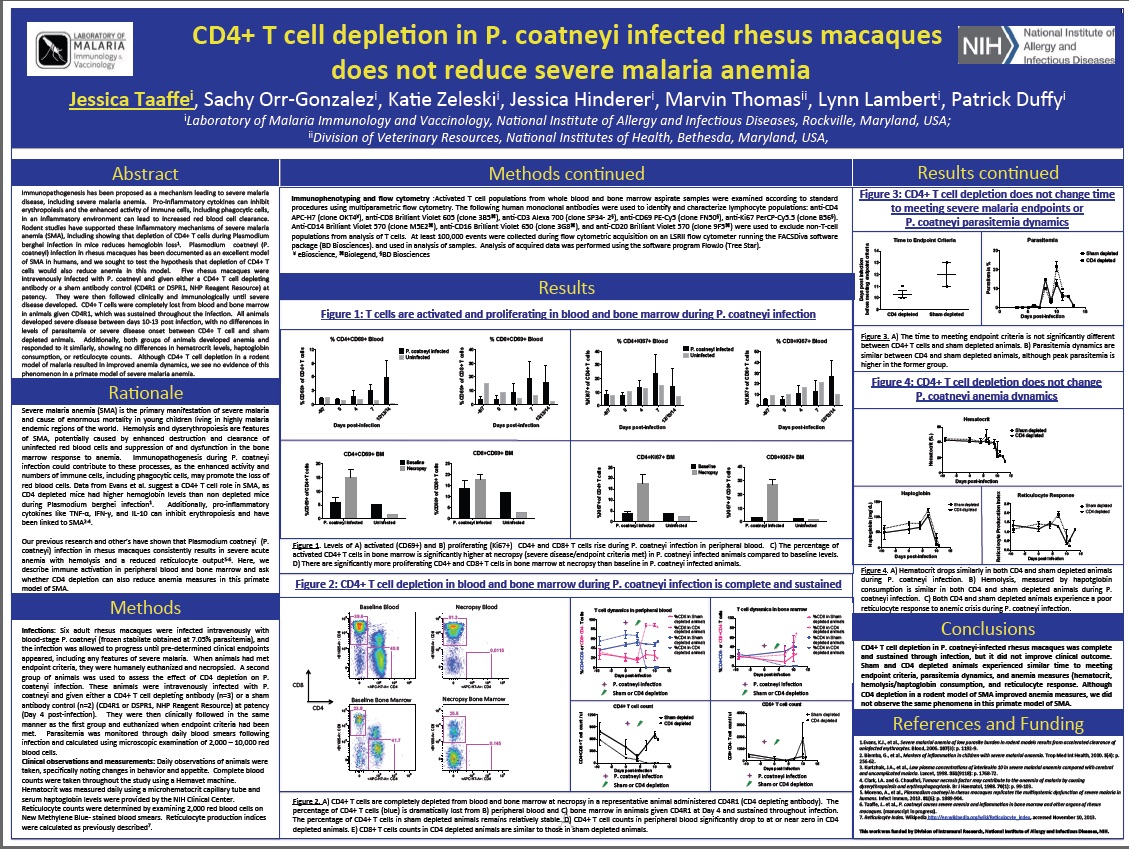
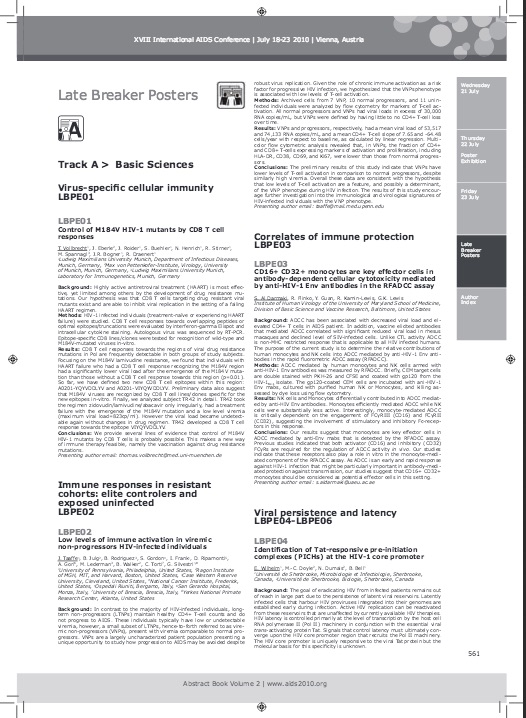
Key Publications
Raja, A., Brickley, E., Taaffe, J. et al. A primate model of severe malarial anemia: a comparative pathogenesis study. Sci Rep, 2019.
Taaffe, J. Comparative studies of progressive and non-progressive AIDS virus infections in human and non-human primates. Dissertations available from ProQuest. AAI3463091.
https://repository.upenn.edu/dissertations/AAI3463091, 2011.Taaffe, J. et al. CCR5 blockade is well tolerated and induces changes in the tissue distribution of CCR5+ and CD25+ T cells in healthy, SIV-uninfected rhesus macaques. J Med Primatology, 2011.
Taaffe, J. et al. A five-year longitudinal analysis of sooty mangabeys naturally infected with simian immunodeficiency virus reveals a slow but progressive decline in CD4+ T-cell count whose magnitude is not predicted by viral load or immune activation. J. Virol, 2010.
Wang, S., Parker C., Taaffe, J., et al. Heterologous HA DNA vaccine prime--inactivated influenza vaccine boost is more effective than using DNA or inactivated vaccine alone in eliciting antibody responses against H1 or H3 serotype influenza viruses. Vaccine, 2008.
Wang, S., Taaffe, J., et al Hemagglutinin (HA) Proteins from H1 and H3 Serotypes of Influenza A Viruses Require Different Antigen Designs for the Induction of Optimal Protective Antibody Responses as Studied by Codon-Optimized HA DNA Vaccines. J. Virol, 2006.



